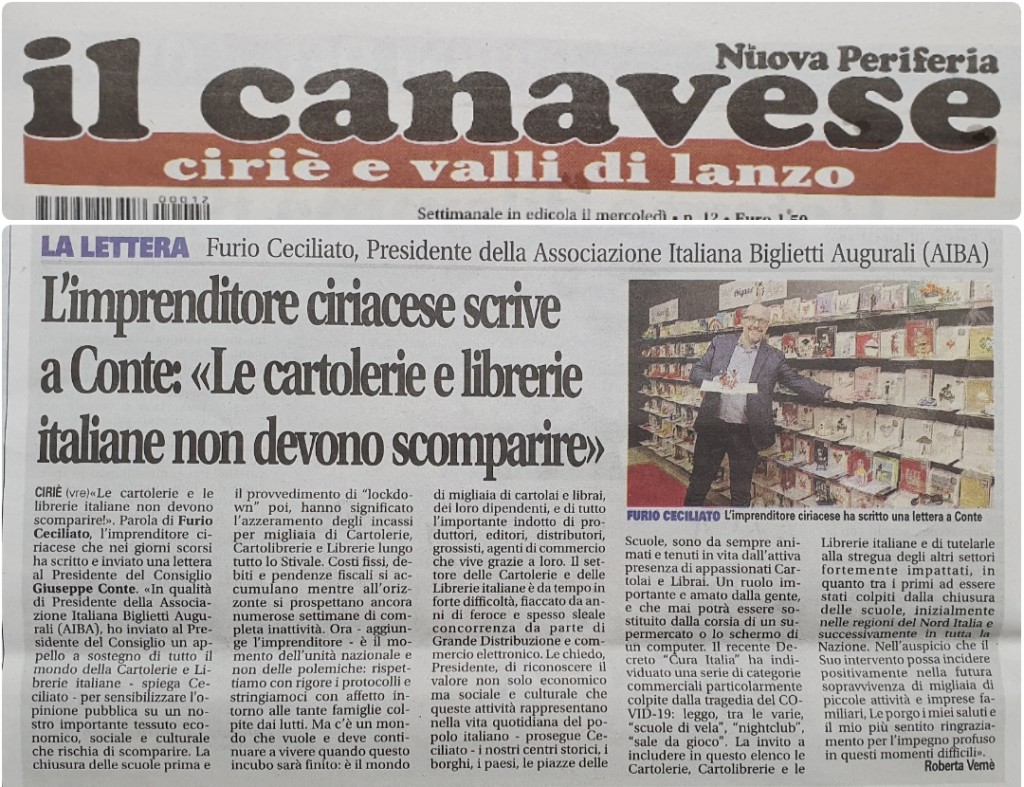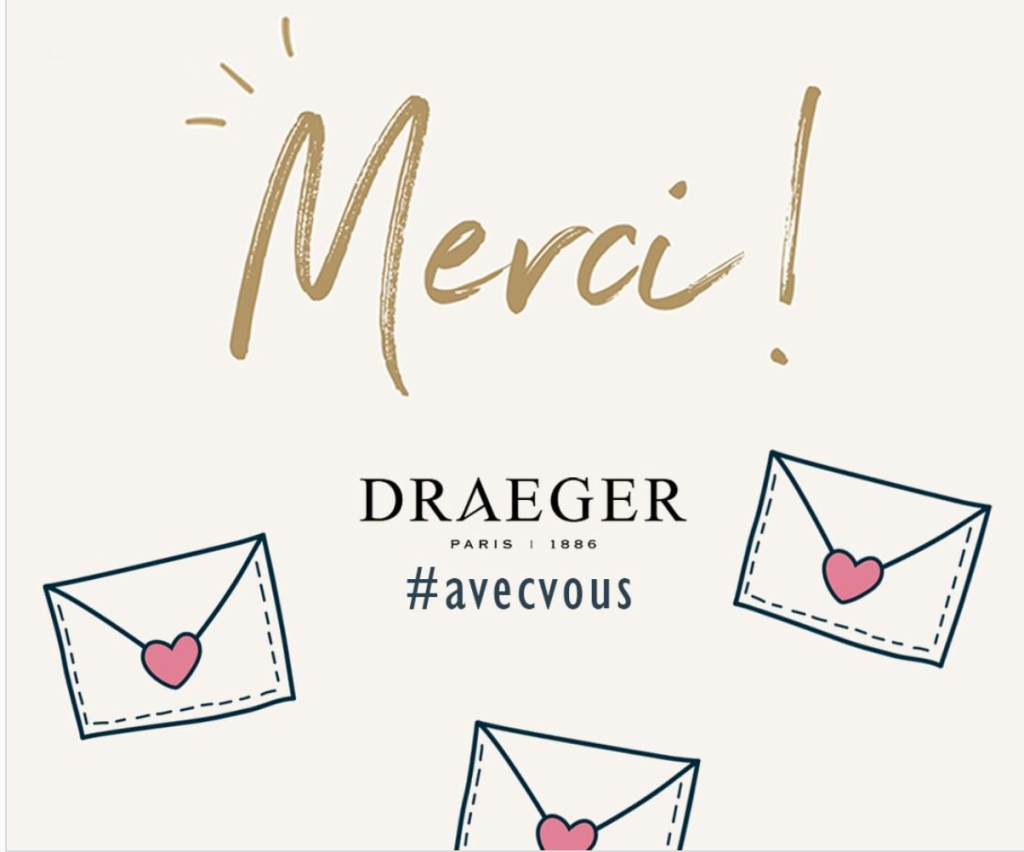Leading greeting executives from the USA, Australia, Holland, France, Germany, Switzerland and Malta ‘Zoom-ed’ in yesterday (May 4) to share views and experiences on the card front from their part of the world.
Hosted by PG Buzz and also attended by Amanda Fergusson, ceo of the GCA, the global gathering of international greeting card stalwarts collectively sprovided an insightful verbal tapestry into how Covid-19 is affecting greeting card markets in various parts of the world.
It may have been 7am in the morning for father and daughter duo Alan and Vanessa Harnik (of US-based Notes & Queries) when the meeting took place, but they were bright eyed with news from the other side of the Atlantic. Meanwhile, despite it being 9pm at night, Jenny Cummins, md of Sydney-based McMillan Cards was full of vigour ever keen to share how the pandemic is affecting the card business in Australia. Meanwhile, highlighting some similarities as well as many disparities within the European countries was Furio Ceciliato of Origamo (Italy), Olivier Draeger of Draeger La Carterie (France), Stefan Hermann of Taurus Kunstkarten (Germany), Ton Hollander of Artige (Netherlands), Markus Keller of Cart (Switzerland) and Suzanne Mizzi of Paperworld (Malta).

Kicking the meeting off on a very positive note, much to the envy of others, Ton Hollander shared how card sales in the Netherlands are booming, with Millennials especially flocking to the card racks to buy greeting cards, for their grandparents, friends and family. While group gatherings are not allowed and the elderly are advised to remain at home, shops in Holland have been able to trade throughout the crisis though those in the heart of the city centres have tended to remain closed. However the shops in the suburbs and small towns, where the bulk of card stockists are based have remained open.

“Christmas is nothing like this! It is a very positive story for the Dutch greeting card market,” says a buoyant Ton. “Cards with messages such as ‘hugs and kisses for my grandma’ are doing very well, for example.”
Artige has also done very well with its brand new Samen Sterk range, which roughly translated means ‘Together we are strong. We can beat this together’.

Turin-based Furio Ceciliato of Origamo was effervescent with positivity, less about the commercial upturn on the card front, but more about the anewed gusto from those in the sector. After two months of complete lockdown in Italy, Furio spearheaded a campaign to put pressure on the Italian government to ensure that stationers (the main greeting card stockists in Italy) were among the first types of re-open. “I wrote an appeal to our Prime Minister and shared my letter on social media. It went viral, attracting support from over 300,000 people which created a lot of noise from the public that contributed to stationers being allowed to open their doors. While the card market in Italy is tiny what the campaign has done is instil an energy and enthusiasm that was not there before,” says Furio. As well as kick-starting the formation of an Italian GCA equivalent, it has also resulted in the next wave of the campaign, a free to download poster for all greeting card stockists which carries the message of how, in these social distancing times, ‘a card is the hug I would like to give you.’


Meanwhile, from beautiful office in Paris (which having been refurbished into a beautiful open plan space a year ago has just been re-configured back to a traditional layout for the staff’s safety) Olivier Draeger of Draeger La Carterie/Hallmark/Nouvelles Images is bracing himself for a 30% drop in turnover due to the crisis.

“Even the supermarkets which are open have closed their non-food sections where the greeting cards were displayed,” reveals Olivier. That said, the company has invested in positive action to ensure greeting cards are freely available, literally. Its brand new #avecvous campaign has seen 100,000 greeting cards being offered free of charge (accessed from its website in packs of three cards) to consumers which, as Olivier sums up bring “balm to the heart”.

While card sending is not that engrained in either Italy or France, it is very much so in Malta, America, Australia and to a lesser extent Germany and Switzerland. Sadly the impact of the coronavirus is taking its toll on these respective card markets (notably for importers of UK based publishers) for various reasons.
From a practical standpoint, as Jenny Cummins from McMillan Cards, which imports from many UK publishers pointed out: “My wings have been clipped. Many of our state borders have been closed so I can’t go and visit customers, let alone my UK publisher partners. We’ll be able to trade through this, but our business is down around 85%. I am however thankful that I had already imported a lot of stock before this, as air freight is not only very limited now, but is now almost five times as costly as previously,” Jenny reveals.

As well as suffering from the airline embargo which precludes shipping in the normal way, similar to Australia, Notes & Queries’ Alan and Vanessa Harnik shared how the disparity between how the different states of America are dealing with the crisis is adding to the complexity of doing business.

“Stationery stores in some states are now able to trade as long as they sell ‘essential goods’ so we have seen a number adding hand santisers and masks to their offer!” shares Vanessa. “Sadly it has been estimated that 30%-40% of independents in the States will not make it through, which is very sad,” she adds.

As Alan highlights, “Communication and relationship building has been key” with the company instigating virtual ‘retail round tables’ and meetings with its UK publisher partners.
“We all have to accept that life will be different, but think about what it will look like in 2021 and plan for that,” says Alan philosophically.
In Germany, looking for the positives, Stefan Hermann feels hopeful that independent bookshops, which are sizeable retailers of greeting cards will come out of this period stronger. “They have responded to the challenge by offering delivery services to compete with Amazon or setting up table collection points at the front of their shops.”

In Switzerland, Markus Keller is holdings out for the planned re-openings of museums and galleries next week as this will hopefully see an upturn in his card sales. “I also hope that there will some benefit in Swiss people taking their vacations in the country this year, but we all have to accept it is a bad year for business and that hopefully next year will be much better,” said Markus.

While attendees were envious of the sunny climes in Malta (due to be 28 degrees yesterday!), there was no hiding Suzanne Mizzi’s sadness at how the constraints of the pandemic has killed the Maltese card market dead.
“It is our Mother’s Day this Sunday and my card sales are down 75%. All the I ordered at Spring Fair is packed away for next year. We are a very occasion-driven card market, but there are no communions or confirmations, no weddings, no children’s parties, 40th, 50th birthday celebrations. No one is buying greeting cards. It is very sad.”

Interested to hear how others are feeling about placing orders for Christmas trade, Suzanne’s mood was lifted by Alan’s prediction that “it is going to be a good Christmas,” with “people likely to want to connect with those they have not been able to see.”
The greeting card world is populated by some special people and a good bunch of them zoomed in yesterday to send their own personal greetings!
Top: The greeting card industry has hands across the globe.























